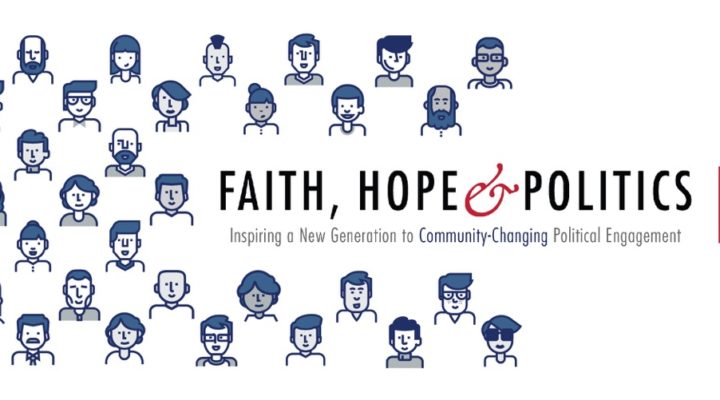By Brent McDougal
Who is the next generation? When I speak of the next generation of leaders, I am mostly referring to millennials, people born between 1980 and 2000. Soon these people will become America’s largest living generation and hold the biggest share of the workforce. They’ll be taking the reins in established leadership roles, but they are also creating new roles through online platforms and reimagined career possibilities. But who is this next generation of leaders and can they be engaged in our current political culture in positive, community-changing ways?

Brent McDougal
The next generation is all about justice. This young generation has been unfairly characterized as self-absorbed and uncaring. But Millennials may more truthfully be called the justice generation because of their tendency to act immediately when they see something wrong. They want to respond whether by doing an act of service, joining an online petition, or offering financial help. For some, the desire to help others comes from a religious motivation, but for many, it stems from a belief in the goodness of humans and the compassion to see that we’re all hurting and needy.
The next generation is aware of the power and pervasiveness of terrorism. The most significant event for this generation is 9/11. Security is a huge issue for millennials, not something to be taken for granted. They have never lived without a 24-hour news cycle that constantly highlights the ways our world are divided, desperate, and seemingly under siege. They don’t just read about the schools where isolated teenagers and extremists walk in with an arsenal and commence random shootings. They have seen video of these events, watched interviews with those affected, and even attended those schools and experienced the fear personally.
The next generation doesn’t feel much economic security. Will there be jobs in the future, and do our current institutions prepare us for such jobs? Nothing is certain. No wonder there is so much focus on the immediate through social media. That’s more tangible than what may happen five years from now. And why should millennials trust the generation of political leaders ahead of them when they’ve inherited a system with so many challenges?
The next generation values multiracial perspectives. Many of our children have witnessed the first African-American president, who was elected on the hope that racism would finally be put to rest in America. There was great optimism that political divides could be overcome as racial tensions subsided. But in our current political climate the divide seems wider than ever, and communities are still segregated and suspicious of outsiders. Even so, millennials have never known a context that is not multiracial. They value the perspectives of different cultures and faiths.
The next generation is connected 24/7. Millennials know the power of technology, and the generation after them has always grown up with mobile technology. There is a world of knowledge at their fingertips. There are plenty of facts to sort through, and how those facts fit together in a consistent way of viewing the world can be challenging. Yet, oddly, the rise in mobile technology has also increased the amount of anxiety that people feel. People feel overwhelmed by the amount of information that comes into our field of vision each day. With mobile technology, there is a constant stream of interactions and more anxiety about one’s social standing, increasing our sense of disconnectedness.
The next generation values authenticity. This may be the most defining quality of millennials. They value authentic exchanges. Inauthentic leaders repel them. They sense that there is more power in everyday, honest conversations than in a thousand political speeches. And they’re right. Above all else, one must be true to oneself in the millennial generation.
The next generation is spiritual but not religious. There is a deep spiritual core in most millennials. They think deeply about the meaning of life and what it means to be human. Most millennials want to believe. But they want little to do with organized religion. They have been disappointed with the impotence of religion to bring about genuine change. Religion instead is viewed as the protector of the majority and as an arena that justifies racial separation and the poor treatment of gays, lesbians, and transgender people. If authenticity is the highest value of millennials, then religion has a real problem. Most congregations struggle to be places of authenticity and honest dialogue, prompting most millennials to check out.
The next generation is hopeful. Amazingly, millennials describe themselves as hopeful and optimistic about the future. Even with the challenges ahead, they see a world of possibility. They just see it differently and have little expectation that the current structures can be reformed. They’re imagining new ways of interacting, of doing business, of educating and cooperating. Many young people see a great future in giving their lives to businesses that make their communities better, working for nonprofits, or teaching in underserved areas to bring about a better future.
The very qualities of authenticity, connectedness, and hopefulness give me great expectations for the kind of leaders that the next generation will be. Leaders who are justice-minded and globally-focused can transcend the boundaries and gridlock that currently define our politics. I’m hopeful that a better day is on the way. Just because the politics of the past have been defined by violence, divisiveness, and hatred doesn’t mean our future has to be that way as well.
This article is excerpted from the new book Faith, Hope & Politics by Brent McDougal. Brent is pastor of Cliff Temple Baptist Church in Dallas, Texas. His book can be ordered from Smyth & Helwys here or from Amazon.com.
Learn more at: Smyth & Helwys
Smyth & Helwys Books, an imprint of Smyth & Helwys Publishing, is named for two inspiring pioneers of religious liberty, John Smyth and Thomas Helwys. Along with its curriculum imprint, NextSunday Resources, Smyth & Helwys has been in operation since 1991. Its offices are located in Macon, Georgia.


